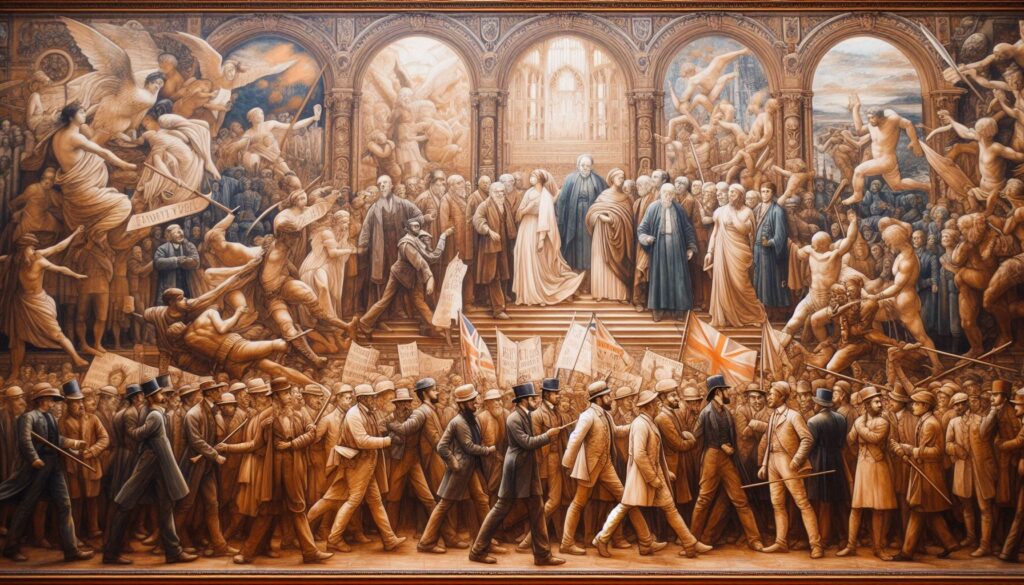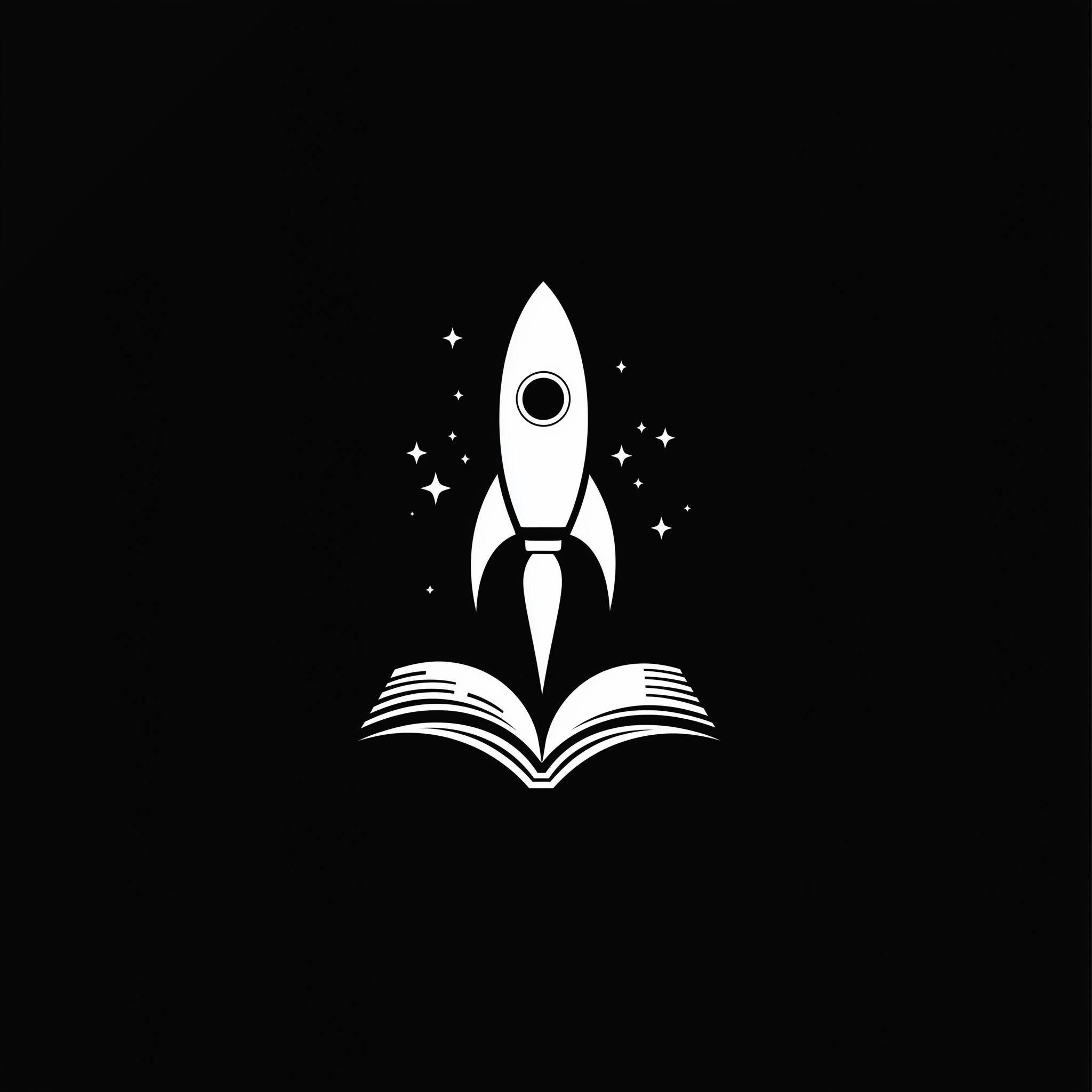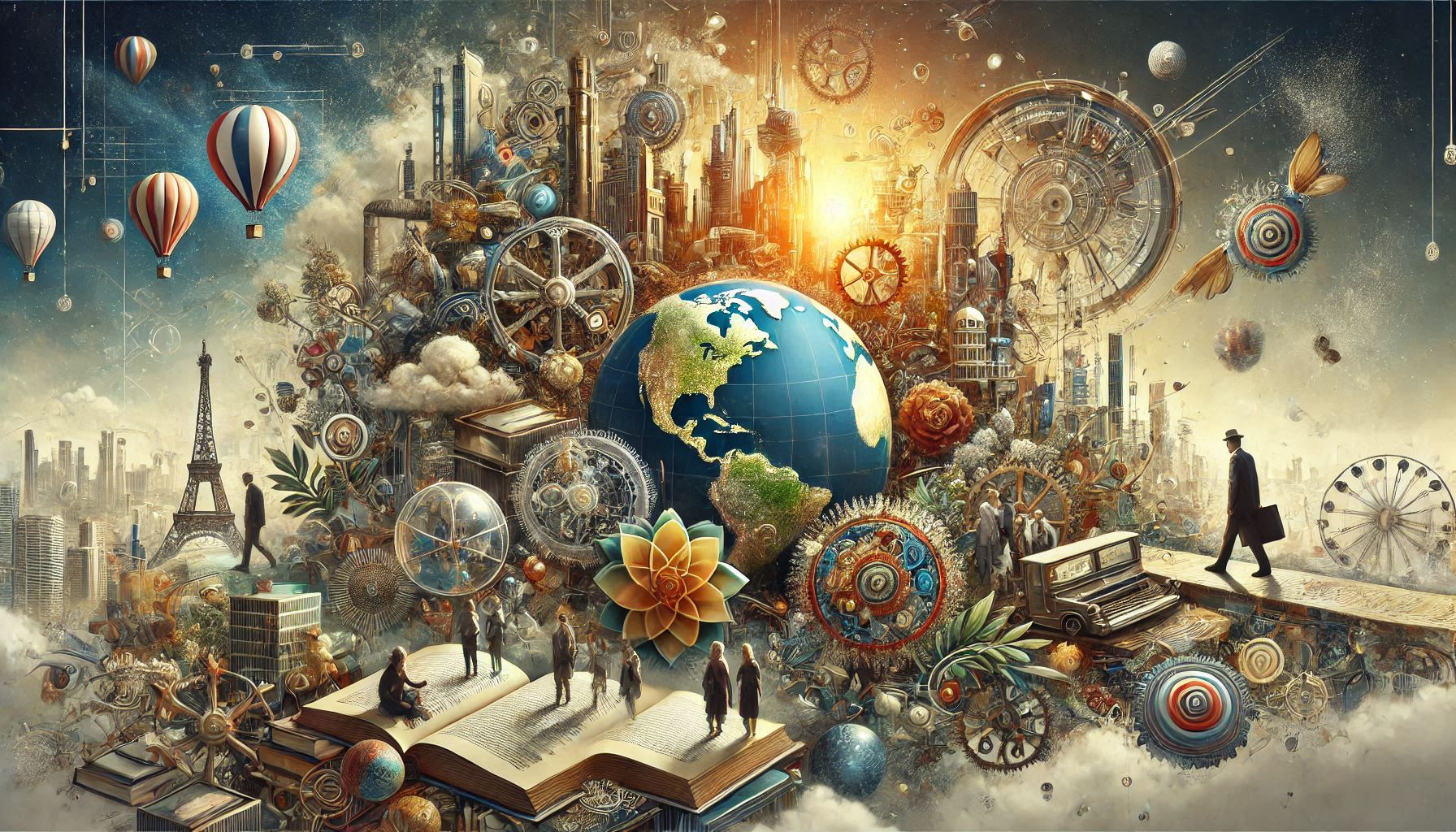Our world is becoming more interconnected everyday. Literature and historical fiction are two bridges to understanding different people; these two genres allow us to see diverse cultures, histories, and perspectives.
As you consider this unique and diverse reading list for historical enrichment, think about the depth and emotional clarity you will develop as you read.
This reading project will also improve your vocabulary and critical thinking skills. As you review the following ten book titles listed, consider their unique views of history and culture. To further entice you to read more I’ve listed credible sources on these books who explain the value of reading these books.
These award winning authors will give you valuable insight.
Readers from all walks of life will benefit.
1. “Sapiens: A Brief History of Humankind” by Yuval Noah Harari
Yuval Noah Harari’s Sapiens provides a sweeping overview of human history, examining how cognitive revolutions have shaped societies. This thought-provoking narrative invites readers to reconsider what it means to be human.





Sources:
- The Guardian praises Harari’s ability to present complex ideas in an accessible manner, emphasizing its relevance in contemporary discussions about civilization.
- National Geographic highlights the book’s capacity to dismantle traditional narratives about humanity’s progress and provoke thought about current societal structures.
- Forbes notes that the book encourages critical thinking about the evolution of societies and can serve as a springboard for readers to engage with questions about future challenges.
Benefit: Readers across backgrounds will find this book enriching as it challenges assumptions about human development and societal structures.
2. “Guns, Germs, and Steel: The Fates of Human Societies” by Jared Diamond
In Guns, Germs, and Steel, Jared Diamond investigates the underlying factors that led to the uneven distribution of wealth and power across civilizations. By analyzing geography, agriculture, and technology, he offers insights into how these forces shape our world.




Sources:
- National Geographic underscores Diamond’s ability to unpack complex historical processes while making them relatable to readers interested in both history and social sciences.
- The New York Times commends Diamond’s narrative style for weaving in engaging stories that illustrate his arguments effectively.
- The Washington Post emphasizes that this book serves as a crucial resource for understanding global inequality.
Benefit: This work benefits readers from various fields by providing a comprehensive framework for understanding historical events and their long-term impacts on society.
3. “The Immortal Life of Henrietta Lacks” by Rebecca Skloot
Rebecca Skloot’s The Immortal Life of Henrietta Lacks delves into medical ethics through the story of Henrietta Lacks, whose cells became instrumental in scientific research without her knowledge. This narrative prompts discussions around race, ethics, and the complexities of medical research.






Sources:
- The New York Times highlights Skloot’s masterful storytelling that intertwines science with personal history.
- NPR emphasizes the book’s role in sparking conversations about ethics in medicine and research among diverse audiences.
- Kirkus Reviews points out how it sheds light on the contributions of African Americans to science while addressing systemic inequalities in healthcare.
Benefit: This book resonates with readers across disciplines—from medical professionals to those interested in social justice—inviting them to reflect on ethical issues within their fields.
4. “The Nightingale” by Kristin Hannah
Kristin Hannah’s The Nightingale tells the story of two sisters navigating life during Nazi-occupied France. The narrative beautifully captures women’s resilience during wartime—a perspective often overlooked in history.




Sources:
- BookPage highlights Hannah’s storytelling prowess and her ability to create emotionally compelling narratives that resonate with readers.
- USA Today praises the book for its vivid portrayal of female strength and sacrifice in times of conflict.
- Library Journal notes that this novel serves as an important reminder of women’s roles during significant historical events.
Benefit: This poignant tale offers valuable insights into resilience and courage, making it a vital read for those interested in women’s history and wartime experiences.
5. “The Devil in the White City” by Erik Larson
Erik Larson’s The Devil in the White City intertwines the Chicago World’s Fair with the chilling tale of a serial killer operating at the same time. This historical narrative illuminates architectural advancements alongside societal changes during a pivotal moment in American history.





Sources:
- Publishers Weekly praises Larson’s narrative style for bringing historical figures to life through captivating storytelling.
- Entertainment Weekly highlights how Larson seamlessly blends true crime with rich historical context.
- The Atlantic notes that this dual narrative provides unique insights into American innovation and morality.
Benefit: The combination of true crime with historical elements appeals to a wide range of readers—from history buffs to mystery enthusiasts—encouraging deeper engagement with American culture.
6. “A People’s History of the United States” by Howard Zinn
Howard Zinn’s A People’s History of the United States presents an alternative perspective on American history, focusing on marginalized voices often excluded from traditional narratives.





Sources:
- The Washington Post recognizes Zinn’s influential role in shaping discourse around U.S. history.
- NPR emphasizes how Zinn encourages readers to critically evaluate historical events through different lenses.
- The Boston Globe highlights its significance as an educational resource in classrooms across America.
Benefit: Readers from diverse backgrounds can relate to Zinn’s focus on social justice issues, prompting critical discussions around equity and representation.
7. “The Color Purple” by Alice Walker
Alice Walker’s Pulitzer Prize-winning novel The Color Purple delves into the lives of African American women in the early 20th century South. Through Celie’s journey toward empowerment, readers explore themes of racism and resilience.







Sources:
- NPR acknowledges Walker’s profound impact on literature while emphasizing her exploration of complex social issues.
- BookRiot points out how Walker’s work invites critical reflection on race and gender dynamics.
- The Guardian commends its literary significance and emotional depth.
Benefit: This novel fosters empathy among readers from all walks of life while promoting discussions about race, gender, and empowerment.
8. “Bury My Heart at Wounded Knee” by Dee Brown
Dee Brown’s Bury My Heart at Wounded Knee chronicles Native American history from their perspective during westward expansion in America—a crucial account often overlooked in traditional histories.





Sources:
- The Atlantic recognizes its role as a foundational text for Native American studies.
- PBS highlights how it gives voice to marginalized communities while challenging dominant narratives.
- Kirkus Reviews praises its emotional impact and historical significance.
Benefit: Readers gain a nuanced understanding of Native American experiences, fostering empathy and encouraging informed discussions about Indigenous rights today.
9. “The Book Thief” by Markus Zusak
Markus Zusak’s The Book Thief tells the story of a young girl who finds solace in stealing books while living in Nazi controlled Germany. This unique narrative structure enhances vocabulary while providing insight into life under totalitarian rule.





Sources:
- The Los Angeles Times commends Zusak’s imaginative approach to historical fiction that captivates readers.
- School Library Journal emphasizes its ability to engage young adult audiences while tackling heavy themes.
- Entertainment Weekly notes its emotional resonance as a profound reflection on humanity amidst chaos.
Benefit: This story appeals to young adult readers as well as adults seeking meaningful literature that explores humanity during dark times.
10. “The Silk Roads: A New History of the World” by Peter Frankopan
In The Silk Roads, Peter Frankopan reframes trade routes as crucial centers for cultural exchange throughout history rather than focusing solely on Western narratives.






Sources:
- Financial Times describes it as an exhilarating re-examination of history that transforms readers’ perspectives on global events.
- The New Yorker emphasizes its comprehensive approach to interconnectivity among civilizations across time.
- Bloomberg News highlights its relevance in today’s globalized world where understanding cultural exchanges is vital.
Benefit: This global perspective is particularly beneficial for those looking to understand current global dynamics through historical contexts, appealing to academics and casual readers alike.
Conclusion
Engaging with these diverse texts not only enriches our understanding of history but also enhances our vocabulary and critical thinking skills—essential tools for navigating our complex world. Each recommended book invites readers from various backgrounds to explore new ideas, consider multiple perspectives, and foster empathy through understanding.
As you embark on your reading journey with these titles, remember that literature has the power to transform minds and open hearts—ultimately making us better readers and more informed individuals ready to engage with the world around us.
Embarking on a journey through literature can be transformative, especially for new readers seeking a deeper understanding of significant world events. The ten carefully curated books on this list not only illuminate historical narratives but also provide multifaceted perspectives that resonate across diverse experiences.

First and foremost, Sapiens by Yuval Noah Harari invites readers to contemplate the entirety of human history, revealing the cognitive revolutions that have shaped our societies. This broad overview encourages critical thinking about our past and its implications for the future.
In Guns, Germs, and Steel, Jared Diamond challenges traditional notions of civilization by exploring the geographic and environmental factors that led to unequal societal development. This analytical approach fosters an understanding of global disparities, prompting readers to reflect on contemporary issues.
Books like The Immortal Life of Henrietta Lacks by Rebecca Skloot and The Nightingale by Kristin Hannah offer poignant insights into race and gender during tumultuous historical periods. These narratives not only humanize historical events but also emphasize the resilience of individuals amidst adversity.
Erik Larson’s The Devil in the White City masterfully intertwines true crime with architectural innovation during the Chicago World’s Fair, illustrating how societal progress often coexists with moral complexities. Similarly, Howard Zinn’s A People’s History of the United States invites readers to view history through the lens of marginalized voices, broadening their understanding of social justice movements.
Books such as Bury My Heart at Wounded Knee and The Color Purple shed light on the struggles and triumphs of underrepresented communities, enriching readers’ empathy and perspective on societal issues.
Ultimately, engaging with these ten powerful narratives equips new readers with both depth and context—an invaluable foundation for understanding significant world events and their ongoing impact on humanity. Through these diverse lenses, literature fosters informed dialogue, promoting awareness and a richer appreciation of our shared history.

By prioritizing diverse voices in your reading list, you contribute to broader conversations about history that are inclusive and multifaceted—reflecting the richness of human experience across time and space.
Happy reading my friends!
Pamela


Leave a Reply to Alice Cancel reply